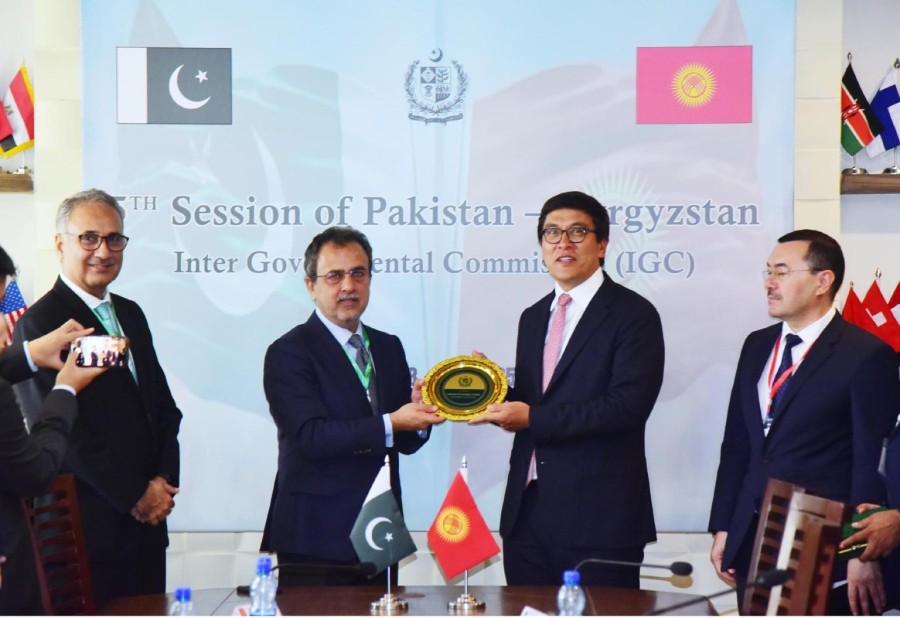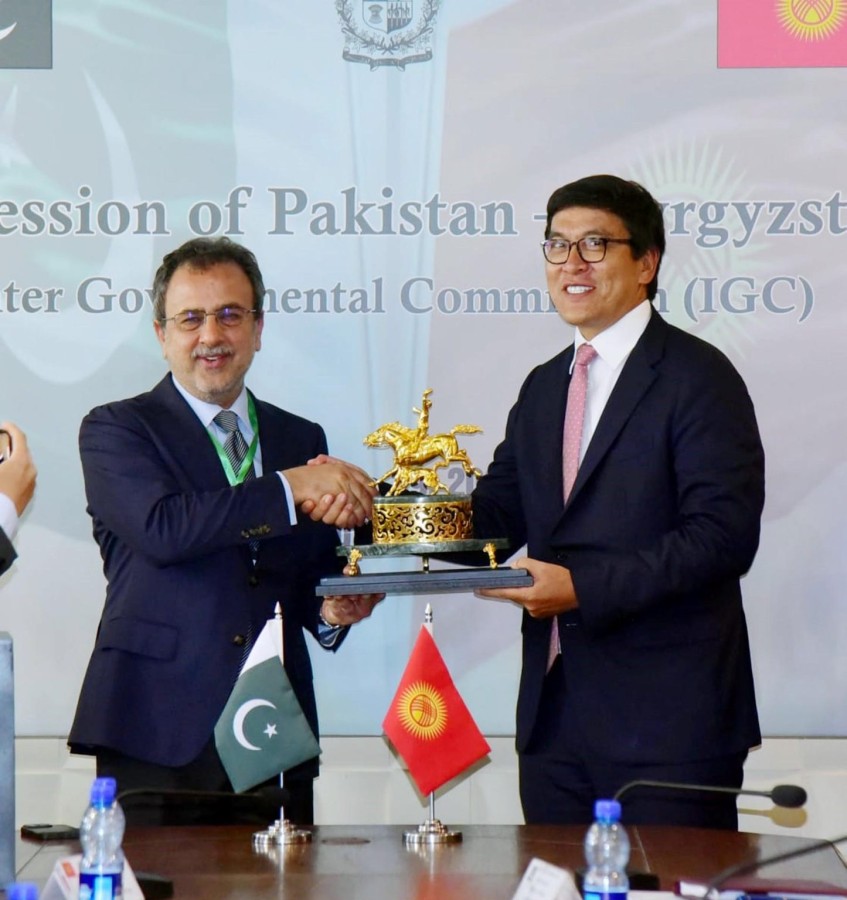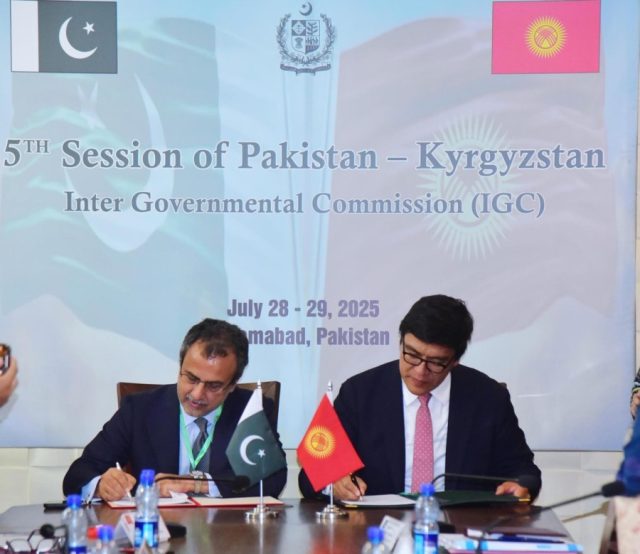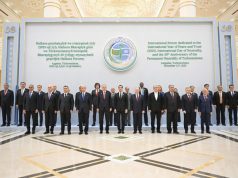ISLAMABAD, Monday, July 28, 2025 (WNP): Pakistan and Kyrgyzstan on Monday reaffirmed their shared resolve to elevate economic ties and regional connectivity as they concluded the 5th session of the Pakistan-Kyrgyzstan Inter-Governmental Commission (IGC) on Trade, Economic, Scientific, and Technical Cooperation in Islamabad.
The session marked a major milestone in bilateral relations between the Islamic Republic of Pakistan and the Kyrgyz Republic, reflecting mutual ambition to unlock new opportunities across trade, energy, investment, health, education, and cultural exchange.
The high-level meeting was co-chaired by Pakistan’s Minister for Energy (Power Division) Sardar Awais Ahmad Khan Leghari and Deputy Chairman of the Cabinet of Ministers of Kyrgyzstan Edil Baisalov.

In a key outcome of the session, both sides agreed to raise bilateral trade volume to $100 million, focusing on export diversification, joint business ventures, and the revival of the Pakistan-Kyrgyz Joint Business Council. Plans are underway to host trade fairs, business forums, and B2B exchanges to drive momentum.
The session witnessed the signing of three important Memoranda of Understanding (MoUs):
- Signed between Pakistan Standards and Quality Control Authority (PSQCA) and Kyrgyzstan’s Center for Standardization and Metrology, the MoU aims to harmonize metrology, conformity assessments, and quality management systems.
- The Board of Investment of Pakistan and the Kyrgyz National Investments Agency inked a pact to foster cross-border investments and business facilitation.
- The Pakistan Halal Authority and Kyrgyzstan’s Halal Industry Development Center agreed to boost cooperation in halal certification and product trade.
Kyrgyzstan proposed joint participation in a power transmission project connecting Kyrgyzstan, China, and northern Pakistan. The two countries also agreed to explore energy imports, renewable energy development, and partnerships in hydrocarbons and mining—particularly between Pakistan’s Hydrocarbon Development Institute and Kyrgyz State Technical University.
On regional connectivity, both nations committed to enhance logistics and transportation collaboration, including postal services, cargo and rail transport, and civil aviation. Pakistan proposed transitioning Kyrgyz charter flights to regular passenger services and expressed interest in Kyrgyzstan’s new air route project linking with China.
The Kyrgyz side also invited Pakistani participation in a high-speed fiber-optic communication corridor, furthering digital connectivity across the region.
To advance financial ties, both central banks agreed to work on Islamic banking frameworks, with Pakistan’s National Institute of Banking and Finance offering training support.
In healthcare, discussions focused on cooperation in medical education, pharmaceuticals, and joint ventures in vaccine and biological product manufacturing. Pakistan welcomed proposals to ease public procurement participation and register Pakistani medicines in Kyrgyzstan.
Education and scientific collaboration featured prominently, with both sides agreeing on academic exchanges, training programs, and support for Kyrgyz students under Pakistan’s Technical Assistance Program (PTAP). A Joint Working Group on labor cooperation will also be formed to explore workforce opportunities.
People-to-people exchanges were identified as a vital tool for fostering deeper ties. The two countries agreed to hold regular cultural events, collaborate in cinematography and broadcasting, and support participation in international sports competitions. Pakistan also proposed content sharing and media training initiatives.
The session concluded with a commitment to hold the 6th IGC meeting in the Kyrgyz Republic, with final dates to be confirmed via diplomatic channels.
Pakistan’s Ministry of Economic Affairs hailed the session as a “key milestone” in strengthening Islamabad’s engagement with Central Asia. “These initiatives will advance regional economic integration, foster sustainable development, and bring our peoples closer,” the Ministry stated.

The latest developments reaffirm Islamabad and Bishkek’s growing convergence on shared economic goals, connectivity, and mutual prosperity in the broader Eurasian region.




